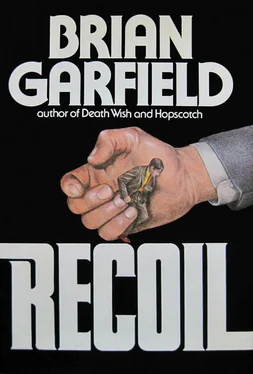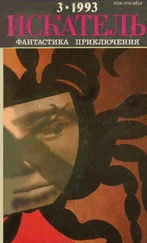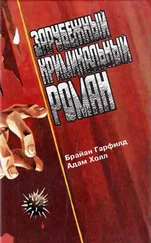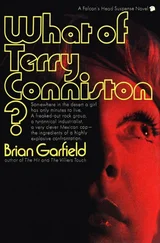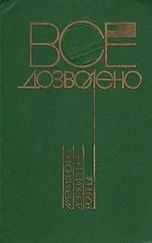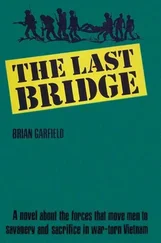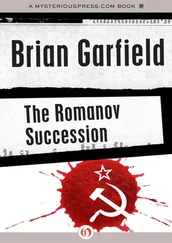Bradleigh’s shoulders drooped a little. “All right. You’ll suit yourself, I guess.”
Mathieson said, “I’d appreciate it if you wouldn’t try to trace us. I’d appreciate it even more if you’d wipe these new names and ID’s off our records but I don’t suppose you can do that.”
“No. I can’t.”
“All right. We’ll settle for what we can get.”
“I’ll have to tell them you got away from us. I’ll pull Caruso and Cuernavan away tonight at ten o’clock for a short conference. You’ll have about ten minutes to be out and gone.”
“Tell it any way you want. As long as they don’t come looking for us.”
“I’ll do what I can. It’s the least I owe you. Fred—”
“I know. Good luck yourself.”
“Send me a postcard. Or give me a ring. Anything — just let me know you’re all right. Will you do that?”
“Yes,” he said, not sure whether he would do it. He opened the door. “You’re about to boil over, Glenn.” He picked up the heavy envelope and walked across the lot toward Caruso’s car. He didn’t look back.
When they drove away from the motel he saw no sign of pursuit but he doubled through the dark back streets anyhow, zigzagging through silent residential areas, avoiding the main arteries and keeping half his attention on the mirrors.
Jan and Ronny were silent with the washed-out enervation of something near hopelessness. He’d made the decisions himself. Jan had neither argued nor offered suggestions.
He avoided the freeway and drove south from Tucson along the highway to Nogales. It was fifty miles to the Mexican border; they were there in less than an hour. The station wagon needed only a few gallons but he made a point of filling the tank at a station within a few blocks of the border gate and he engaged the station’s owner in conversation because he wanted the man to remember them.
At the border he applied for three temporary visitor visas in the Baxter family name. The visas weren’t necessary for entry to the border town itself but they were required if you went more than a few miles deeper into the country. He was laying a false trail; it would buy them a little time.
They drove into the Mexican side of Nogales and ate dinner at the Cavern Restaurant; he’d been there once years before and remembered the turtle soup and it was still as good as it had been but he hardly noticed.
It was midnight when they put it back on the road. He’d studied the map and it looked like a rugged but passable highway; it proved to be a barely graded dirt track filled with chuckholes from the last rains and it took the rest of the night at snail’s pace to cross eastward along the south side of the border, across the Sonora provincial boundary and through the dry hills to the village of Agua Prieta. At eight in the morning they crossed back into the United States. The Mexican guards merely waved them through; the American customs men tossed their luggage cursorily but showed no other interest and only glanced at the Mexican visitors’ permits; he was sure they hadn’t taken down the names and wouldn’t remember faces for more than a day.
The next step was to get rid of the car because Caruso knew it, the year and color and plate number.
Sleeplessness laid a grit on his eyeballs but Jan was too groggy to drive and he made do on three cups of strong road-house coffee and a big breakfast of steak and eggs. It kept him going along the highway north from Douglas to Benson. He kept checking the mirror and found nothing alarming there. The station wagon’s air-conditioner was inadequate against the Arizona desert and they sat three abreast because the cooling didn’t reach into the back. He filled the tank and checked the oil in Benson; they had lunch in a café and went eastward. The Interstate brought them into Willcox in midafternoon and he drove down the exit ramp into the town.
He dropped Jan and the boy with all the luggage at the Trailways depot and checked the wall-posted schedules: There was a four o’clock express to Tucson, Phoenix, El Centro, Riverside and Los Angeles. It gave him forty-five minutes. He drove along one of the main streets until he found a shopping center; he parked the car in a slot near the edge of the big parking lot, left the keys in the ignition and walked to a telephone booth. He looked up the number of the local taxicab company, “Fast Service Radio Dispatched,” and arrived back at the depot with fifteen minutes to spare.
They bought the tickets and waited for the bus; it was on time and they found seats without difficulty. He was speculating on how long it might be before someone spotted the keys in the ignition of the station wagon he’d left behind. Probably it would be stolen within twenty-four hours.
The Tucson stop was a dinner stop; they were on the road again at nine, out of Phoenix by midnight and barreling westward along the same route they’d taken last week coming the other direction with Caruso’s three-car convoy. The starlit desert was nearly invisible through the tinted windows; the air conditioning was too cold in the half-empty bus and condensation gathered along the chrome strips of the overhead luggage racks. Mathieson slowly blinked his raw eyes and felt the anger eat at him like an ulcer.
It was nearly three o’clock when the bus stopped in El Centro. He made several calls from a booth and finally found a motel that was still open for business and had vacancies. He booked a double room with a cot and they took a taxi from the depot. At half past three they carried their bags into the room. Mathieson said, “We’ll buy a car tomorrow. Let’s try to get some rest — we’ll talk tomorrow.”
The Gilfillans were at the cabin waiting for them and he watched to see if the reunion would revive Jan. She was nodding and talking and smiling in response to things addressed to her but it might be automatic.
Finally the luggage was carried inside, Ronny and Billy were dispatched to the creek with Roger’s fishing tackle, four chairs were set out on the porch, drinks were distributed.
He hoped that telling their story to Roger and Amy would restore reality to the nightmare experiences they had endured.
He let Jan tell it; he watched Roger’s and Amy’s reactions. As she spoke Jan became more animated, angrier; twice she laughed but it was laughter twisted inward. She drank too much too quickly and slurred. She’d had a headache all day; it became blinding and she went inside, moving like an old woman, Amy taking her along with an arm across her shoulders like a practical nurse.
It left him alone with Roger on the porch. Roger stood up. “Bourbon and branch again?”
“All right.”
“Girl needs rest.”
“Yes.”
“I reckon you do too.”
“I’ll put the car away.” Mathieson walked down to the old Ford they’d bought in El Centro and drove it around the house under the carport. When he emerged he found Roger on the steps holding both drinks.
Amy stood in the doorway. “She’s out for the night, I expect. But the rest of us got to eat. I better repair to the cuisine department. You boys take a hike or something.”
The men walked down along the edge of the pines. “We’re right proud you decided to come to us, old horse.”
There was nothing to say to that, nothing that wouldn’t sound saccharine.
“Y’all welcome to stay on up here as long as you want. You know that.”
“We don’t want to weigh you down, Roger.”
“Ain’t no weight. But winters up here get pretty hard and kind of lonesome. You got to drive fourteen mile to the country store on the main highway. Sometimes it’ll take you the whole day to do it.”
Roger gestured with his drink toward the heavy interior of the forest. “Ain’t likely to ever run out of firewood but this shack wasn’t never built for winter living. You likely find yourselves spending two-three hours every day just cutting up dead trees to feed the fireplace. If y’all decide to stay on why I reckon I could bring in a Kohler plant.”
Читать дальше
